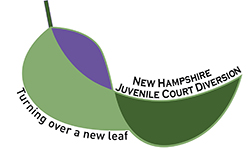On November 18th, WMUR reported on a teen driver that crossed the center line and struck two women. The report generated a flurry of responses, because the teen’s lawyer was requesting “restorative justice, under which he would apologize to the victims instead of serving jail time”. Given that definition — which grossly under-represents the impact of Restorative Justice — our colleagues at CADY, Plymouth, NH, submitted the following:
Restorative justice is a victim-centered response to crime that provides opportunities for those directly affected by crime—the victim, the offender, their families and representatives of the community – to be directly involved in responding to the harm caused by crime. Restorative Justice is based upon values that emphasize the importance of providing opportunities for more active involvement in the process of: offering support and assistance to crime victims; holding offenders directly accountable to the people and communities they have violated; restoring the emotional and material losses of victims (to the degree possible); providing a range of opportunities for dialogue and problem solving among interested crime victims, offenders, families, and other support person; offering offenders opportunities for competency development and reintegration into productive community life; and strengthening public safety through community building.
Research has found restorative justice programs to have high levels of victim and offender satisfaction with the process and outcome, greater likelihood of successful restitution completion by the offender, reduced fear among victims, and reduced frequency and severity of further criminal behavior.
Restorative Justice can be used in many practices throughout the entire judicial continuum. Practices include: Diversion from the judicial system, victim-offender mediation, conferencing in prisons and jails. These practices work to reintegrate offenders back into their communities with the goal of preventing further offenses in the community.
Restorative Justice is much more than a simple apology. It gives the opportunity for offenders to hear and understand the real impact they have had on victims and their families, as well as the communities they reside in as community members are an active part of the restorative justice process. Anyone who has attended restorative conferences witnesses the power of reconciliation and victim-centered justice.
Restorative Justice is a victim-centered response to crime that holds the offender directly accountable to the victim and the communities they have harmed. In no way does Restorative Justice take the place of the judicial system. Restorative Justice enhances the judicial system by providing the opportunity for direct input from crime victims.

